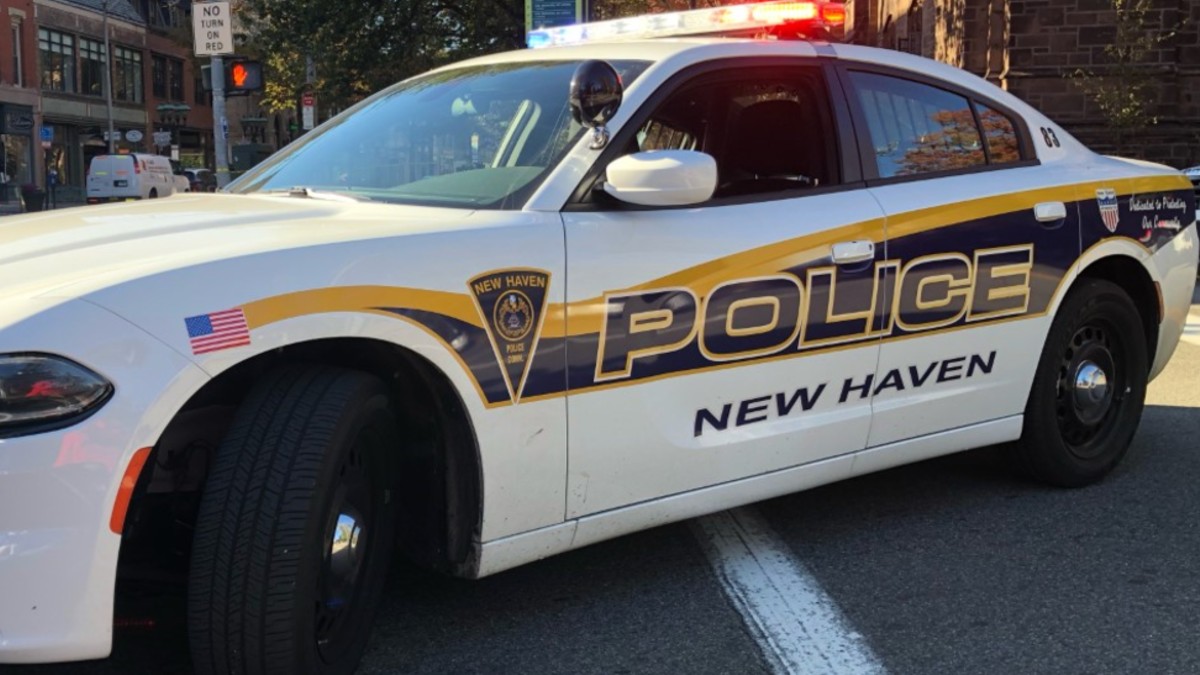
Newly released emails obtained by The Associated Press show Connecticut Gov. Ned Lamont thought he was closed to reaching a wide-ranging gambling deal with the state's two federally recognized Native American tribes.
In an exchange in May with the chairman of the Mashantucket Pequots, the Democratic governor says he thought both sides were at the finish line, but talks apparently hit a snag.
The Democrat told Mashantucket Pequot Tribal Chairman Rodney Butler, in an exchange in May, that he thought the two sides were “at the finish line” in April, but talks apparently hit a snag.
“I’m very disappointed at where we are — we put a good deal on the table (in my opinion) and we worked to make it work for your end — investing a lot of time and understanding there would be give and take for both sides. Let’s discuss,” Lamont wrote in a May 8 email to Butler, obtained by The Associated Press through a public records request.
On May 9, Butler expressed optimism that a deal “that works for CT” could be reached. “We’ll get there,” he said.
Shortly after taking office in January 2019, Lamont and his administration spent months trying to craft a gambling agreement that didn’t violate the state’s revenue-sharing agreement with the two tribes — which own and operate Mohegan Sun and Foxwoods Resort Casino in southeastern Connecticut — but also included new sports betting and internet gambling.
In exchange for exclusive rights to certain forms of gambling, the tribes currently provide the state 25% of slot-machine revenues, which amounts to about $270 million annually. The tribes have said they believe their exclusivity rights include sports wagering.
Local
Lamont has also wanted to reach a “global gaming resolution that will avoid years and years of complex litigation” while strengthening the state’s gambling industry.
Besides possible legal challenges from the tribes, the governor has expressed hope in avoiding costly legal entanglements with MGM Resorts, the casino company that has challenged the state’s decision to authorize a third tribal casino in East Windsor that has not yet opened.
Months later, Lamont appears to be taking a different approach, telling reporters last week it might be better to “keep it simple” and push ahead with legislation in the new General Assembly session that authorizes sports betting and internet lottery games.
“Rather than maybe go for a whole hog, let’s find places where we think we can get some agreement,” he said Friday. “I’d like a global agreement. I’d like to solve everything for world peace. But in the meantime, I’m going to take what I can get.”
In an interview with the AP, Jeff Hamilton, the new general manager of Mohegan Sun, said passing a sports betting bill next year would be financially beneficial for the two tribes and the state, noting that competition from other states offering sports betting is expected to keep growing since a U.S. Supreme Court ruling in 2018 allowed for it to be legalized in every state.
“We’re hopeful that the governor and the state is going to be able to get that approved,” he said. “I think it’s gotten mucked up in this comprehensive gaming bill. And while we understand that, we understand that the state’s trying to look at gaming in totality, I think to keep on kicking the can down the road and every month that sports betting does not exist is another month where the state is not generating as much revenue as they possibly can. … It seems counterintuitive, with the current economic states of the state budget.”
Hamilton said it would be good to see aspects of a wider-ranging gambling bill, which have included talks of another casino in Bridgeport, come to fruition, but he said, “I don’t know that anyone here would complain” if Lamont and state lawmakers decided to wait on those concepts and instead focus on quickly passing a sports betting bill.
“I think getting one thing approved that I think everyone is in agreement on seems to make the most sense instead of getting nothing approved, which has been what we have been dealing with,” he said.
Back in June, however, Butler appeared optimistic that a second round of last-minute, wide-ranging negotiation, this time organized by Democratic House Speaker Joe Aresimowicz and involving the tribes and members of the Bridgeport and southeastern Connecticut legislative delegations, might finally address the concerns raised by Lamont. In June 4 email to Lamont, Butler reported the tribes had a “really good dialogue” with the mayor of Bridgeport and the city’s delegation “to come up with a comprehensive deal that encompasses many of the visions you laid out.”
While Lamont publicly raised questions about the proposal, Butler urged him not to give up on it.
“Nothing will ever be perfect, but we can’t let the pursuit of perfection get in the way of progress,” Butler wrote in his email. “I believe when you have a chance to review where we are at, you’ll feel the same. Let’s see if we can get this across the finish line.”
Later that month, more emails showed Lamont and Butler seemed optimistic that a deal could finally be reached. In a June 16 email, Butler wished Lamont a happy Father’s Day, prompting the governor to respond, “Back at you Rodney. Now let’s make a deal.”
A couple hours later, Butler answered: “Yessir, I think we are close as we have ever been. Let’s get it done!”
Ultimately, that second push didn’t work out, either.



